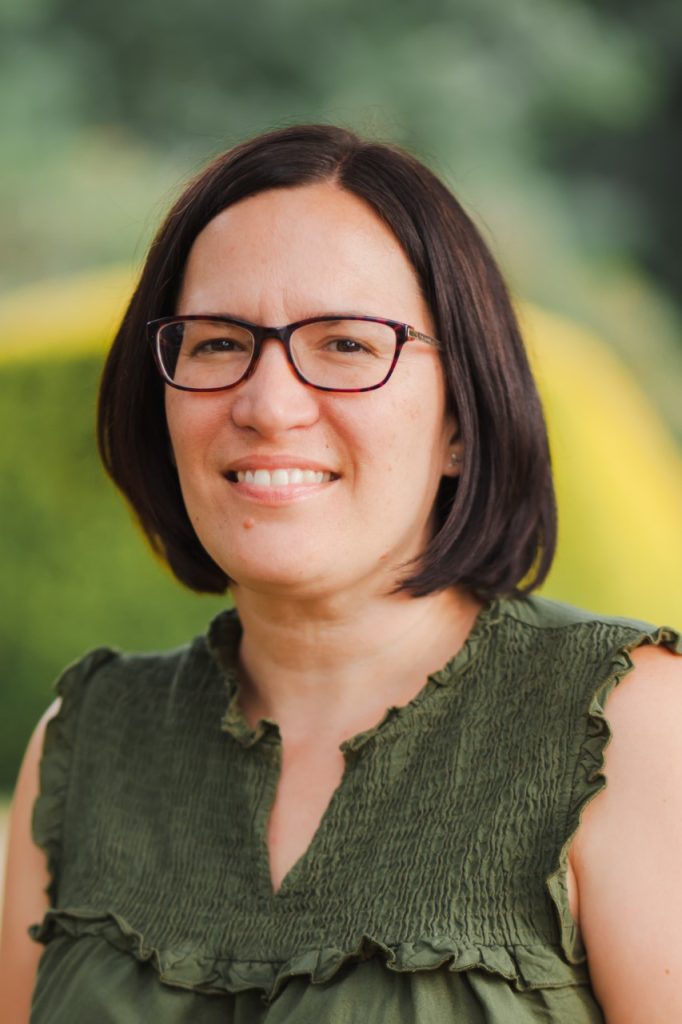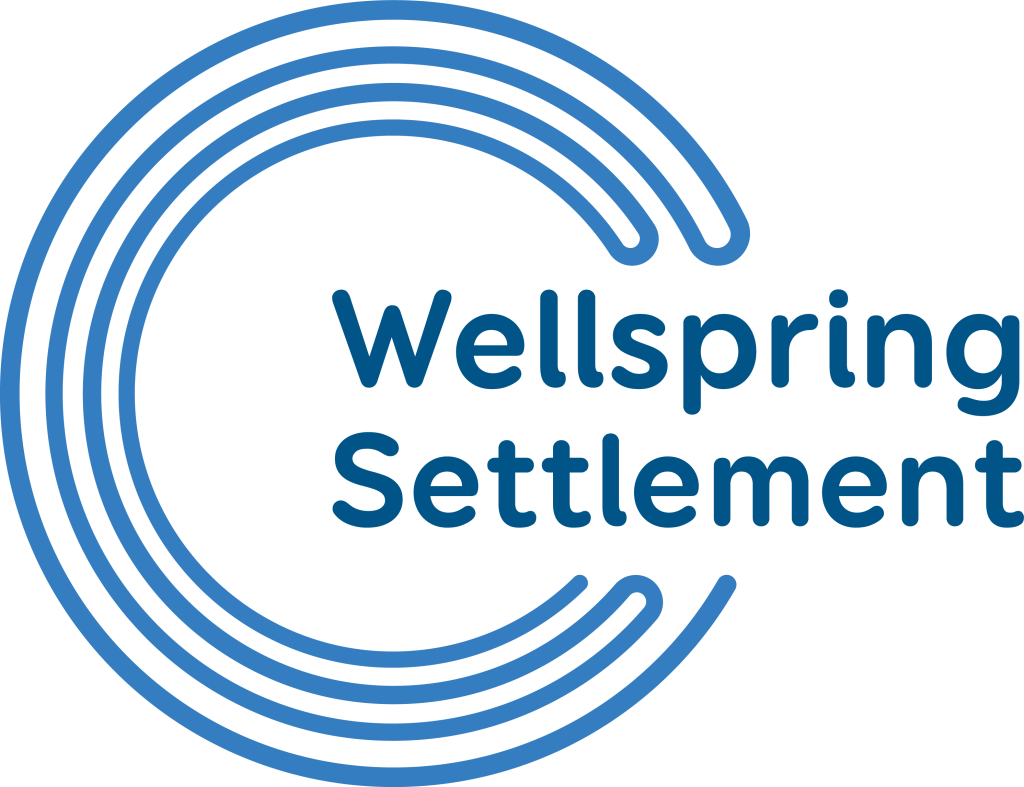Coffee with Beth: Our New CEO
It’s been all change at Wellspring Settlement over the past few years with the most recent change being the appointment of Beth Wilson as CEO. We sat down for a chat to find out a bit more about her, and her vision for the organisation’s future.
Why did you apply for the job of CEO at the Wellspring Settlement?
I’ve known about the organisation for a long time in my previous role at Bristol Refugee Rights. Bristol Refugee Rights is a tenant of Wellspring Settlement, so I have been watching their work from up close over the last few years. I could see how much of an important organisation it is for this area, and for the community.
But like all charities, I think that it’s a tough time. I was looking for a challenge, and the idea that there was some value I could add was quite exciting to me.
One of the things that really attracted me was the multiple streams of work and that the organisation really focuses on the community, whereas I’d previously worked around one particular area of need.
That mixture of being focused on meeting specific needs, but also on community cohesion and community development and bringing people together as a general principle, is really important right now.
And what about Barton Hill itself, where Wellspring Settlement is located?
I have worked in Wellspring Settlement at Bristol Refugee Rights for a few years and I’m also a Bristolian; I love the area of Barton Hill.
I’ve seen Barton Hill change a lot in that time. It’s improved a lot, and I think that one of the things that really attracts me to the area is its diversity. And how much, despite its obviously challenges, everybody feels like they’re welcome here.
As you say, Barton Hill is a culturally diverse area, with people that may have been refugees. How can you challenge some negative attitudes prevalent in politics and media?
I think it’s often those individual stories that are really telling and can make an impact. At Bristol Refugee Rights, we would work with people who’d been head teachers or engineers, people who’d had careers in their own country. They were now working as cleaners or couldn’t get a job at all because they didn’t speak English. They had a life before. Their story isn’t just about getting on a boat and crossing the ocean.
Telling these stories humanises people and you get a bit closer to people realising that actually, these are just people who have many great stories and life experiences to share. They really aren’t different to you and me.
What work can you do directly with such people at Wellspring Settlement?
Well, a priority at Wellspring Settlement is about working with individuals to really raise their aspirations and opportunities. We did a lot of work on that at Bristol Refugee Rights: supporting volunteering and getting people into work where they did have status. Wellspring Settlement have also done this kind of work, and really want to do more of it.
Asylum seekers are quite limited in their rights at first, a lot of people can’t work, whereas at Wellspring Settlement, the vast majority of people we’re working with will be people who are at least entitled to work. So, there are differences, but fundamentally it’s about supporting people from where they are at.
What do you think you bring to the role?
I guess I’m an experienced CEO so I know the job of running an organisation.
I think I bring the way I work collaboratively. I’ve done a lot of work on building partnerships in the past, on building collaborations and ecosystems, and on getting people to work together generously. Both externally and internally.
I can bring that in terms of my approach, that relationship building. And the other thing is about enabling others. Bristol Refugee Rights was a service user led organisation, or we very much aimed for it to be, and I think that’s something that I can bring to Wellspring Settlement. We really want to be led more by our community in the work that we’re doing, that I’ve got a lot of experience that I could bring around that process and developing in that way.
What are the big social and economic challenges for people living in the areas the Wellspring Settlement serves?
From talking to people who’ve been in the organisation for a long time, there’s a sense that the cost-of-living issue is just another way of referring to lots of the challenges that our community have been dealing with for years. To some extent it’s nothing new. It’s actually the deprivation, poverty, poor employment prospects, poor health and wellbeing that our community have been experiencing for a long time, and certainly as long as we’ve been here.
Now, I don’t want to downplay those challenges; I’m sure if you were only just making ends meet before, you’re probably not now. And we can’t downplay that reality. But I also think it’s really important that we don’t end up in a space where people think the problem’s gone away in a couple of years when this immediate crisis recedes.
Alongside that challenge, paradoxically, you also have one of the most expensive multi-million pound developments in Bristol coming on the edge of Barton Hill – Temple Quarter.
So, there could be real opportunities there. How can you ensure that the people from the communities that you represent, have a share and a taste of the pie? And do you see that as a part of the Wellspring Settlement’s role?
Yes, and I think that’s really challenging because it’s so big and so long term. A lot of the community just don’t really see what relevance it’s got to them at the moment, or think it’s going to be another Cabot Circus, that promised to bring loads of benefit and has done nothing for the community.
So, for us as an organisation, it’s really challenging and we’re definitely in a phase at the moment where there’s been quite a lot of thinking around what our response should be.
There are potentially opportunities to try and position ourselves, and we can support people to develop their skills so that jobs in the new development are available to them.
We would like to influence what sort of housing is available to try and ensure it will benefit local people. But at the moment it feels a bit too far away to engage with for a lot people in the community.
What’s the biggest challenge you face leading a sustainable charity today?
Well, the financial effect post Covid and cost-of-living, is having a negative impact on funding for charities. So that is an ongoing challenge in the coming years, and one that most organisations are facing. Funders gave out lots of emergency grants during Covid and now they’re re-thinking how they do their funding. We need them to work with us to think more long term, and not be so short term responsive.
What are you most excited by?
So, I’m really excited about The Swan and what that will bring. This was an old pub on our Settlement Site that we’ve purchased a couple years ago. It was derelict for a few years so we are making it safe and watertight at the moment, and we’re waiting on funding to turn that into a youth space. There has been a bit of a gap in youth provision in the area for a while so I’m excited by what that brings.
We are hoping to get back up and running some youth services, and when the time comes we will want to work with young people to think about what they want from that space.
Are there any new projects coming up we should keep an eye on?
There is a creative research project that one of our colleagues Jude is doing. This involves working with local people from the community, talking with them and finding out their views on health and what good health looks like. We hope that this will feed into our overall strategy around health.
And that’s connected to the university, isn’t it?
Yes to the University of Bristol, which is connected to our original history as Barton Hill Settlement was founded in partnership with them. So that’s a really nice piece of work that’s going to be happening with the community and with the university.
The merger of the Barton Hill Settlement and Wellspring Healthy Living Centre took place a couple of years ago now. For someone reading this who has never accessed either of the spaces, what goes on?
Lots goes on! We’ve got our family centre, and they run lots of different activities for parents and children, including parenting courses.
We have got a food club where people can come along each week and get a box of food. We have some adult education courses happening now which give people a taster of studying and get them thinking about what they might want to do in the future.
We have our Boost programme, which is all about supporting people with their economic challenges. So, it could be advice about somebody’s benefits, or managing a money situation, and looking in an empowering way about the future.
There is our social prescribing team, which takes referrals from GPs, to support people to get into activities that will help improve their work, their wellbeing and health.
We’ve also got lots of art and wellbeing activities, physical activities, a learning kitchen and both musculo-skeletal and complementary health clinics.
The sites of the Wellspring Settlement also offer valuable space to other community organisations don’t they? Just give me a flavour?
There are lot of organisations on both sites, all of which have been selected because they are organisations that will be of benefit to our local community. This includes Dhek Bhal, which works with South Asian community, the Somali Resource Centre, the University of Bristol, the GP surgery, and of course the Bristol Refugee Rights where I worked in the shipping containers at the bottom, in what we call the Micro Settlement. A lovely peaceful space.
So, it’s great there is so much going on, and collectively we really hope to make a huge impact on the lives of local residents.
Thank you Beth. Appreciate it. Good luck with the role and we wish you great success.


